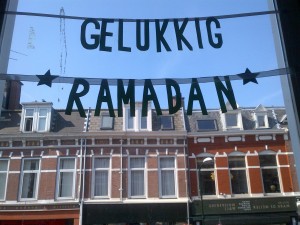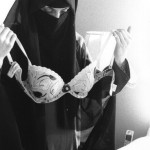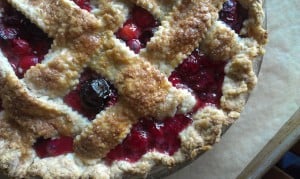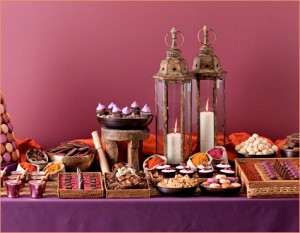Having spent two Ramadans in the Netherlands now, I still can’t get used to the lonely and isolating experience of fasting without an extended network of family and friends. But I must count my blessings. I have a wonderful husband who doesn’t think twice about helping to cook sahur and iftar, and I have amazing friends sparsely distributed in several towns around my own. When we manage to get together once in a few months for a meal (and one iftar), it means the world to me.

I still find it difficult to cultivate an atmosphere of spirituality without community support. The only mosque I am comfortable enough with (and whose sermons are given in a language I can understand) is relatively far away, so it takes a lot more effort to go for an iftar or a tarawih prayer and meet other Muslims. With the long hours of fasting, tarawih at midnight is hardly an option for two people who rely on bicycles and public transport.
My biggest challenge this year was overcoming others’ perceptions of me, and my own perceptions of myself. It started with hanging a paper decoration in the window. This is typically Dutch, as they announce the births of their children this way. I cut out letters that spelled out ‘Gelukkig Ramadan’ – the Dutch approximation of ‘Ramadan Mubarak’.
Even though I had suspected that one of the neighbours in the apartments across the street is a Muslim family, I had never spoken to them. The Turkish pizza place a few houses down was always filled with men, and so I never felt comfortable talking to them either. (Not to mention that my Dutch language skills are still rather limited!)
I fretted for an absurdly extended amount of time over whether I would put up these decorations. On one hand, I didn’t want to aggressively ‘out’ my convert husband, who might not want people in the street to know he was fasting. On the other hand, I yearned for a semblance of festivity.
One morning as my husband and I came back from the farmer’s market, we bumped into our former neighbour. He had noticed my paper greetings and asked us if we were fasting, and commented that the long summer day ‘must be a challenge’. We also heard later that our Muslim neighbours across the street noticed our sign and liked it too! This made me feel optimistic about being more open about being Muslim and fasting in the Netherlands.
Even though I work from home and I don’t have to meet colleagues daily and therefore fast openly, I could understand some of the challenges of my Dutch friends who are ‘undercover’ Muslims. Their strategies include taking a month’s vacation off work, postponing social appointments to after Ramadan, or giving up a day’s fast by having an obligatory cup of tea or coffee when visiting family.
Some members of my husband’s family think that fasting is silly or dangerous to one’s health. Since I couldn’t avoid visiting them for one month, I decided not to fast when visiting one of them because it would be too complicated to have to refuse food and drink until 10pm. (I suppose that when Ramadan days are shorter, I could avoid this.)
But I had not been able to fast consistently for the past two weeks anyway. I just completed my first trimester of pregnancy, and while I never felt excessively hungry, thirsty or tired, I was also worried about the nutrition I was able to take in. Due to the long hours of fasting, I could never stomach enough food or water to reach my recommended daily intake of 1700 calories.
I knew that I could be exempted from fasting, of course. But a part of me was in denial that my body was not in service of me anymore, but another (rapidly growing) being. Getting harsh and polarised advice (“you must not fast” v. “you should try to fast no matter what”) made me even more confused. I was still thinking in terms of all-or-nothing: either I fast the whole day or I don’t.
Eventually, I took my own advice, which I gave to my mother who suffers from diabetes. I had been telling her for the second year now that she should just pay fidya and fast for the rest of her senses.
I ended up fasting on alternate days, and breaking my fast into two parts of nine hours each. This ‘innovative’ solution of mine was not taken kindly (“you still have to make up a full day if you fast half a day”), but I enjoyed getting up early for sahur and working until dawn broke, and cooking and eating iftar together with my husband.
Eating at sahur and iftar made it feel just like Ramadan. The little bit of hunger I felt on each day was enough to remind me that it was Ramadan. And remembering why I was fasting in such a different way reminded me that I have very much to be grateful for this Ramadan.
For more on MMW’s Ramadan series, and to read the rest of this year’s Ramadan posts, click here.















